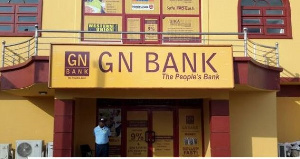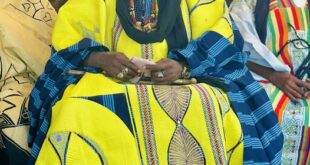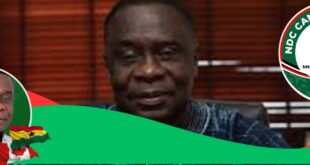On August 14th, 2017 the Bank of Ghana (BoG) revoked the licenses of UT Bank and Capital Bank. GCB took over the two under a Purchase and Assumption transaction. Less than a month later on 11th September, 2017, the BoG announced an increase in the minimum capital requirement for banks from GHS 120 Million to GHS 400 Million (an increase of 233%) by December 31, 2018, giving Universal banks less than 18 months to source additional funds to beef up their capital. This was an unprecendented move. To indigenous banks, this was a clear case of raising the bar to high to ensure those targeted would be posted out of the banking system.
Sensing danger, some heads of indigenous banks then came together to form an “Association of Indigenous Universal Banks” to petition President Akufo-Addo to appeal to the Bank of Ghana and the Economic Management Team (EMT) for at least five years to pay up the new minimum capital requirement.. The President formed a 10 member committee to examine and act on the petition by the indigenous banks. (The committee consisted of 3 members from BoG, 3 members from banks, 3 members from Ministry of Finance and a chair from the presidency.) The committee was formed on 17th April 2018 and tasked to submit their final report by 26th May 2018.
The indigenous banks in their 11-page petition to the president, saw this new policy as out of the norm. They did not understand why the Bank of Ghana would give the same deadline to them as the foreign banks. They cited previous instances where when the minimum capital requirement was raised, indigenous banks were given an average of four years to pay. In 2003 for instance, when BoG raised the minimum capital requirement, banks were given almost four years to pay up, and in 2008 they were given almost five years to settle. At other times, the payment period was even flexible for existing banks, while new entrants were required to comply immediately.
These indigenous banks which included Prudential Bank, Royal Bank, Unibank, Beige Bank, OmniBank, GN Bank, Sovereign Bank, Heritage Bank, Premium Bank, and Construction Bank, proposed a payment schedule of annual instalments over a period of five years ending 2022 where they would each have finished paying the GHS400 million. The schedule they proposed included the following timelines:
That by December 2018, they will raise the minimum capital to GHS170 million each;
December 2019 – GHC220 million;
December 2020 – GHC280 million;
December 2021 – GHC340 million;
December 2022 – GHS400 million.
However, the petition by the indigenous banks didn’t seem to yield any results as the 31st December, 2018, deadline still stood.
The Bank of Ghana on 1st August, 2018, revoked the licenses of five other banks (Construction, Beige, Royal, Sovereign, and Unibank) and transferred their assets and liabilities into a new bank called Consolidated Bank of Ghana (CBG). This consolidation triggered “panic withdrawals” in the banking and non-banking finance sectors as customers feared for the security of their deposits. Strangely, the Bank of Ghana, the Ministry of Finance and Government in general stood by and did nothing to calm the fears of the depositors. On the other hand, many BOG officials and ministers of state went on the offensive, threatening closure of those banks who would not be able to raise the required additional funds. So-called investment and financial analysts also jumped in to declare the indigenous banks not fit and blots on the banking landscape. The Senior Minister advocated mergers. Yet, no assistance was offered to facilitate these mergers.
GN Bank, the People Bank, was also hit hard by these panic withdrawals.
Consequently, the Chairman of GN Bank Dr. Papa Kwesi Nduom took the initiative and led a team of bank officials to begin a tour of the ten regions on Wednesday 3rd October, 2018, under the theme “STOP THE PANIC WITHDRAWALS AND STRENGHTEN OUR INDIGENOUS BANKS”.
They educated the customers on the need to stop the panic withdrawals and assured them that all their monies are safe with the local banks. Still, BOG, the regulator and government officials did not help. The team also used the opportunity to thank the customers who had remained loyal and kept their monies with the indigenous banks.
Meanwhile, shareholders of GN Bank were at the same time looking funds to shore up their capital to meet the new capital requirement.
Several letters were written to the Presidency, requesting for their help to retrieve some of their funds which they had used to finance some projects that were undertaken by some Ministries, Departments and Agencies (MMDAs). Dr. Nduom met the President, Vice President, Minister Of Finance, Governor of BOG, Ministers of State and CEOs of the debtor state agencies. Though assurances were given, payments were not made. An independent audit commissioned at the request of the Ministry of Finance resulted in the GHS2.4 billion state agency and contractor liabilities which still remain.
With the deadline for the new minimum capital fast approaching, shareholders of GN Bank wrote a letter to the Bank of Ghana requesting for the bank to be reclassified as a Savings and Loans Company while steps are taken to retrieve funds from state agencies and others.
Reclassification
The Bank of Ghana on 4th January 2019, approved the request by the shareholders of GN Bank to be reclassified.
“Consequently, GN Bank has applied for, and the Bank of Ghana has approved the grant of a savings and loans company licence. The Bank of Ghana has also approved a transition plan submitted by GN for winding down aspects of its business which are not compatible with a savings and loans company licence,” Governor of the Central Bank, Dr. Ernest Addison revealed at their press conference on the update of the banking sector reforms.
Explaining the rationale for the reclassification to their customers and general public, GN Bank / Savings said it would remain Ghanaian, with a national retail network, to promote financial inclusion.
“From the very beginning, our Vision has been to be a truly National Bank for the ordinary person namely; farmers, professionals, students, workers, and small and medium scale entrepreneurs in Ghana.”
“We will continue to be a financial institution with a difference – go where others are not willing to go, to bring banking to people currently excluded from the formal banking sector throughout the country,” a statement by issued by Groupe Nduom’s Corporate Affairs concluded.
Indeed it is worth noting that the Governor of the Central Bank, Dr. Ernest Addison promised Dr. Papa Kwesi Nduom in one of their meetings at the BoG Headquaters that the Central Bank will do all that it can to help GN retrieve some of its monies that were locked up with the MMDAs so GN Savings and Loans can be liquid again. This however was not done.
GN Savings and Ecobank Ghana Partnership
Although the Bank of Ghana gave 6 months for GN to transition and wind down some of its operations, GN Savings chalked a major success by completing a bank partnership arrangement with Ecobank Ghana on Friday 29th March 2019, within less than 3 months of transition.
A joint statement by Ecobank Ghana and GN Savings noted the agreement will see the two institutions work together in areas that will be mutually beneficial to both entities.
Issah Adam, CEO of GN Savings, said “with 300 locations nationwide, GN Savings brings to this relationship the widest physical outlets for the distribution of financial services in Ghana, creating the desired convenience for customers, especially in the rural areas.
Dr. Edward Nartey Botchway, Executive Director of Finance Ecobank Ghana and CFO Anglophone West Africa said; “We believe our superior technology platform and dedicated staff makes us indeed the ideal partner to support GN Savings and Loans in this regard. For us, this not just a transaction but a partnership that will serve both institutions well. We believe that this partnership will grow and possibly lead to other forms of strategic alliances in the coming years.”
GN Savings license revoked
August 16th 2019, the Bank of Ghana, revoked the licenses of twenty-three (23) insolvent savings and loans companies and finance house companies and placed them under receivership.
According to a statement released by the Central Bank, the revocation of the licenses of these institutions has become necessary because ‘they are insolvent even after a reasonable period within which the Bank of Ghana has engaged with them in the hope that they would be recapitalized by their shareholders to return them to solvency.
GN Savings was included in the list and surprisingly neither shareholders nor management of GN Savings received any formal communication from the BoG regarding the receivership.
Again, certain ‘allegations’ were now being levelled against the once robust bank, which voluntarily opted for reclassification because of the new minimum capital for banks. It must be noted that all these allegations by the Bank of Ghana never came up during the reclassification otherwise why will the same Bank of Ghana grant a Savings and Loans license to GN Bank / Savings if these allegations were genuine?
GN Savings and Loans said it was solvent and rejected all the allegations leveled against it by the Bank of Ghana.
“Our position is that GN Savings is not only solvent, but would be highly liquid if the Ministry of Finance (MoF) simply ordered itself and other government agencies to quickly pay amounts owed to GN Savings and other related entities,” a statement signed by the Chairman and CEO of Groupe Nduom, Dr. Papa Kwesi Nduom posited.
GN goes to court
Dr. Papa Kwesi Nduom together with some shareholders on August 30, 2019, filed an application at the Human Rights Division of the High Court, challenging the decision of the BoG to collapse GN Savings and Loans Company Limited.
The applicants are praying the High Court to make an order of certiorari quashing the August 16, 2019 announcement declaring GN Savings and Loans Company Limited insolvent and consequently revoking its licence to operate as a specialised deposit-taking institution.. The application wants a declaration that the licence revocation is invalid because the BoG and the Minister of Finance based their decision to revoke the licence of GN Savings and Loans, as a specialised deposit-taking entity, on woeful inaccuracies.. The Bank of Ghana, the Minister of Finance, the Attorney-General and the Receiver of GN Savings and Loans, Mr Eric Nana Nipah are the respondents. The applicants are also praying the court to hold that by the respondents’ failure to take into account the government’s indebtedness to Groupe Nduom, Gold Coast Advisors and GN Savings and Loans Limited before concluding that GN Savings and Loans was insolvent, the BoG had violated, was violating or was likely to violate the rights of the applicants and GN Savings and Loans to administrative justice, property and equality or non-discrimination.
Aside the substantive case, the plaintiffs also filed for an order for interlocutory injunction seeking the restoration of the savings and loans company until the determination of the substantive motion that is challenging the decision to collapse the savings and loans company. The applicants also want the court to direct the BoG and its agents not to further interfere directly or indirectly with the rights of the shareholders, management and directors to the possession, management and control of GN Savings and Loans Company Limited’s business activities, pending the determination of the claims in the originating motion, which is challenging the BoG’s decision to collapse the savings company.
Judicial ‘politics’
Political watchers and seasoned analysts have questioned the decision by the Chief Justice, Her Ladyship Sophia Akuffo to transfer Justice Abodakpi to Hohoe when he was initially penned to handle the case. Suggestions were rife in the media that he, Justice Abodapki may side with the superior arguments of the petitioners as UniCredit and CDH Savings and Loans companies had also ran to the court for reliefs. To these watchers, previous rulings of Justice Abodakpi made him a fairer judge to sit on this case as it anticipated that the presiding judge must be someone with fortitude to overturn a political decision that is not grounded in law.
For the fact that Justice Abodakpi was sent to Hohoe gave the opporunity to Justice Koomsom to sit on the case. He did so due to judicial vacation in September. Lawyers for the applicants have sought to halt the whole process by placing injunction on BoG and PWD from completely interfering with operations of GN Savings. But several attempts by the respondents to frustrate the process have left the petitioners wondering when this whole matter will be settled.
Lawyers for the petitioners raised an objection over the sitting judge, Justice Gifty Agyei-Addo, who is the twin sister of Mr. Samuel Atta Akyea, Minister of Works and Housing. Mr. Atta Akyea who is also the Member of Parliament for Abuakwa South is the cousin to the Finance Minister, Mr. Ken Ofori-Atta, who is an agent of the state and party to the suit before the court. This symbiotic relationship between the judge, Justice Gifty Agyei-Addo and the Finance Minister, Ken Ofori Atta makes it a clear case of potential conflict of interest.. In a surprise move, Justice Agyei-Addo ordered the applicant’s lawyer Justice Srem-Sai to strike out the Finance Minister, as a respondent to the case.
The foregoing have got observers worried and asking, ‘Will Justice Be Served’?
Meanwhile, the court has set December 18 to determine whether it has the jurisdiction to sit over the case brought to it by Dr Papa Kwesi Nduom against the central bank and receiver of the savings and loans companies. It must however be noted that the court ruled that in favour of UniCredit and CDH when the Bank of Ghana brought an application challenging the High Court’s jurisdiction over the matter.
The Judge, Justice George Koomson in his ruling said the applicants had properly invoked the jurisdiction of the court and that the case of breach of natural justice is one that the court has the mandate to hear.
Meanwhile, rumours are rife that it was the Ministry of Finance and not the Bank of Ghana that ordered the closure of GN Bank contrary to the claims of independence by the central bank.
Source: mynewsgh.com
 Home Of Ghana News Ghana News, Entertainment And More
Home Of Ghana News Ghana News, Entertainment And More





